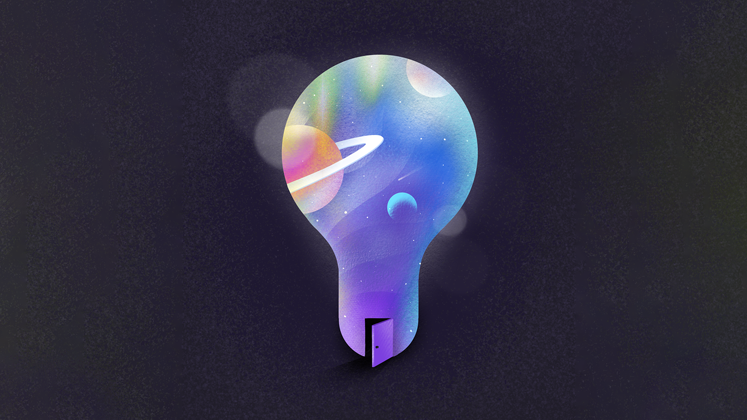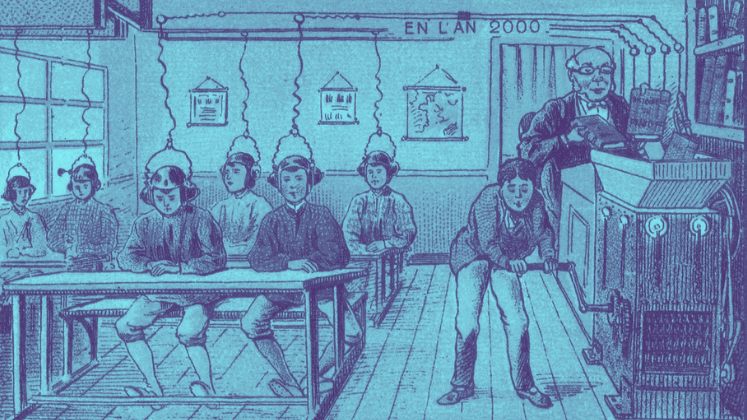Poetry can be perceived as the antithesis of science, indicative of a non-rational mode of thought, and famously banished from Plato’s ideal republic. However, as a form of communication poetry presents a unique way of engaging audiences and empowering them to think about complex issues. In this post, Sam Illingworth, reflects on his journey from atmospheric physics to communicating scientific research through poetry and how this different register is a valuable form of research communication.
The Arctic is warming so fast
The Sea Ice will not always last,
And as sunlight breaks through this tomb
The algae continue to bloom.
This is a science poem. To be more specific it is the first verse of a Kyrielle, written about a piece of scientific research on the Arctic warming effect of phytoplankton. To be even more specific it is a science poem that was written by me. And it is not very good. In fact, it is objectively terrible.
This is one of the first poems that I wrote for my blog The Poetry of Science, which I started back in early 2014. At the time I was a junior academic who clearly did not know what he did not know. I was in the middle of transitioning my research from atmospheric physics into science communication and I thought poetry might help. Incredibly, despite the aesthetic horrors of these early first attempts, it did.
I started emailing the scientists whose work I wrote poems about, and they emailed back to say they enjoyed my approach. People started reading my blog. I got comments (some of which were written by humans). One of my colleagues (thank you Dr Hut) even encouraged me to turn my blog into a research experiment, which I did.
Buoyed by these early successes I began to think further about how else poetry might be used to communicate science. At the same time I was also taking my poetry on the road, entering poetry slams, and performing at open mics. This introduced me to a whole new set of colleagues: poets and spoken word artists.
Passionsblume by Bernd Hutschenreuther via Flickr (CC BY-SA 2.0), cropped and contrast adjusted.
By now quite aware that I did not possess an iota of the poetic talent of my new contemporaries, I sought to improve my craft by attending poetry workshops. These workshops were amazing. They encouraged a safe and inclusive space for both creating poetry and also sparking conversations amongst participants. And they gave me an idea: what if we could use these workshops as a space for bringing scientists and other members of society together? A space to discuss both the scientists’ research and the implications that it might have for other communities.
There is a poem that was written by one of the community members in these workshops that will always stay with me. The community in question was a group of people living with mental health needs in inner city Manchester. They wanted to talk about what air pollution was and the effects that it might be having on them. So we arranged a poetry workshop between this community and a group of scientists to explore this together. At the end of the session, one of the participants wrote the following poetic reflection:
I’ve never seen pollution
never noticed it
It’s always been here
but I’m unaware of it
just breathing it in
For all of the scientists in the room (myself included) this was a formative experience – here was a group of individuals who were some of the least responsible and yet most vulnerable to environmental change. A group of individuals whose voices had been unsought and unnoticed. But for whom poetry had helped provide a platform to be heard.
I have since gone on to run dozens of these collaborative poetry workshops, across a gamut of scientific topics, and with a wide variety of communities. In running these workshops I have also developed my own skillset as facilitator, poet, and science communicator. In turn this has led me to seek out new collaborations and learning opportunities. From creating an album featuring collaborations between poets and scientists, to setting up Consilience, the world’s first peer-reviewed science poetry journal.
These learnings have all culminated in the publication of my latest book Science Communication Through Poetry. For the people who read this, I hope that it helps to provide a framework for how poetry might be used to both communicate and interrogate science. I also hope that it demonstrates the power of writing a blog, and how committing time to honing a craft can yield unexpected yet rewarding results.
So, has my poetry got any better since I started trying to rhyme ‘status quo’ with ‘billion of years ago’? I don’t think it’s for me to say, but I’d like to end with the following poem, inspired by recent research, which has found that neighbourhood green space is tied to lower healthcare costs. And whilst I can’t say it’s great, I don’t hate it either.
Cast from beds unmade,
weary bones and aching hearts
cry out for some return.
A thousand shades of green
drowned by waves of stilted grey,
high-water marks of progress
against the tonal shifts
of nature’s loss.
We catch glimpses in the chrome –
avenues of shaded leaves,
gardens hung from balconies,
potted plants
and roadside trees.
Cures that we have always known,
from places
that were once our home.
The content generated on this blog is for information purposes only. This Article gives the views and opinions of the authors and does not reflect the views and opinions of the Impact of Social Science blog (the blog), nor of the London School of Economics and Political Science. Please review our comments policy if you have any concerns on posting a comment below.









thanks Sam
so glad I found this article (serendipity) and follow-ups
Mary (Melbourne, Vic, Australia)
Thanks for this illuminating article Sam. We are currently doing several research poetry projects in small and large group formats, in-person and virtually, with people living with rarer forms of dementia and their care partners. Here’s a link to our open access protocol paper from earlier in 2022: https://journals.sagepub.com/doi/full/10.1177/16094069221081377
Several other papers in progress. I am finding working with poets as part of our research team to be rewarding and highly informative.
I think the final poem is lovely–I think anyone who has written poetry (science based or not) feels that the work isn’t great but they dont hate it. I would say it is much better than you give yourself credit for!